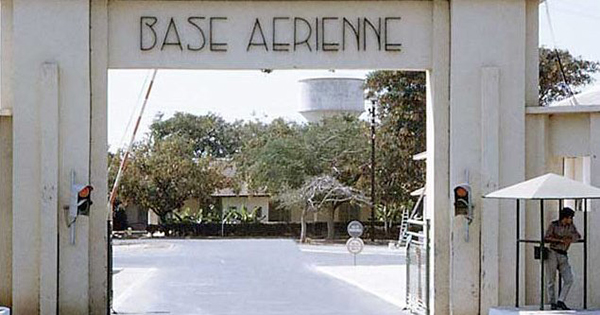French Military in Africa: DAKAR, TEMPORARY SHELTHER

Following its withdrawal from Ndjamena, the French Army will only keep its bases in Djibouti, Abidjan, Libreville and Dakar. Until when? If President Faye leaves open the possibility of the 350 elements based in the capital, the withdrawal clause contained in the Partnership treaty on military cooperation between the two countries is clear: « The Senegalese party reserves the right to request at any time the withdrawal of French forces stationed on its territory, by written notification sent six months before the withdrawal. The French party reserves the right to withdraw its forces at any time by written notification sent at least three months before this withdrawal. »
In Ndjamena, things did not drag on, with the start of the withdrawal of the French Army. It was yesterday that the Chadian General Army Staff published a press release to make the revelation. Immediately afterwards, following after the end of cooperation, defense and security agreements announced by the Chadian government on November 28, France decided to begin this withdrawal with the take-off of two of the three Mirages from the Adji Kossei air base at 1:15 p.m. They were accompanied by a Mrtt and a re-fuelling plane to reach France.
Visits to the Middle-East: Diomaye plays his cards in the Gulf
The Chadian authorities are thus taking the route traced by the AES countries that asked the French Army to withdraw. Its soldiers have packed up from Bamako, Niamey and Ouagadougou, where anti-French rhetoric had become a cry of resistance after the installation of military regimes in these countries. The last vestiges of the French military presence are in Abidjan, Djibouti, Libreville and also… Dakar. Until when?
[themoneytizer id= »124208-2″]
For Senegal, the Head of State opened the door to their departure on the eve of the 80th anniversary of the commemoration of the Thiaroye 44 massacre. In an unequivocal speech, he considered that this presence « does not correspond to our conception of sovereignty and independence ». Without announcing a deadline « for the moment ».
Withdrawal clause
It should be noted that the last Partnership Agreement on military cooperation between the French Republic and the Republic of Senegal was signed on April 18, 2012 by Presidents Sarkozy and Macky Sall. According to the details of the agreement, the treaty is concluded for a period of five years. « It is renewable by tacit agreement for new periods of five years, unless one of the parties notifies the other of its intention to terminate the treaty six months before its expiration. The parties may, at any time and by mutual agreement, amend this treaty in writing. The terms of entry into force of the amendments are those set out in the first paragraph of this article, » reads the document posted online by the French government for reasons of transparency.
Removed from the Assembly, threatened at the town hall: Barth on Sall’s footing
Of course, it is possible for each party to go back on the terms of the treaty: « Each party may denounce this treaty by means of a written notification. Such denunciation shall take effect six months after receipt of the notification by the other party. The denunciation of this treaty shall not affect the rights or obligations resulting from its execution prior to such denunciation. »
[themoneytizer id= »124208-19″]
It should be noted that other annexes were added to the text on October 7, 2014 during the Presidency of François Hollande. The agreement also includes the facilities granted to French forces stationed or in transit from the regional cooperation operational hub, the system of facilities made available to French forces stationed or in transit, and the facilities granted to members of the Senegalese Armed Forces by the French side in terms of training, coaching, equipment, and maritime and air stopovers. Not forgetting the academic facilities granted to members of the Senegalese Armed Forces by the French side in the field of training in France, in terms of instruction and training granted to members of the Senegalese Armed Forces by the French side in Senegal… But, under Macky, Senegal had begun a greater autonomy of the Armed Forces with training and war schools, and the acquisition of latest generation equipment such as the patrol boats of the National Navy. Made up of 350 soldiers, the French Elements in Senegal (EFS), which were created on August 1, 2011, replacing the French Forces of Cape Verde (FFCV), have an air stopover at the Dakar-Senghor military airport, a high-frequency transmission station of the Joint Directorate of Infrastructure Networks and Information Systems (Dirisi) in Rufisque. Following this restructuring, Mr. Wade had decided to allocate their housing in Bel Air, Mermoz and Cité Claudel to higher education teachers and officers of the National Army.
By Bocar SAKHO / bsakho@lequotidien.sn

